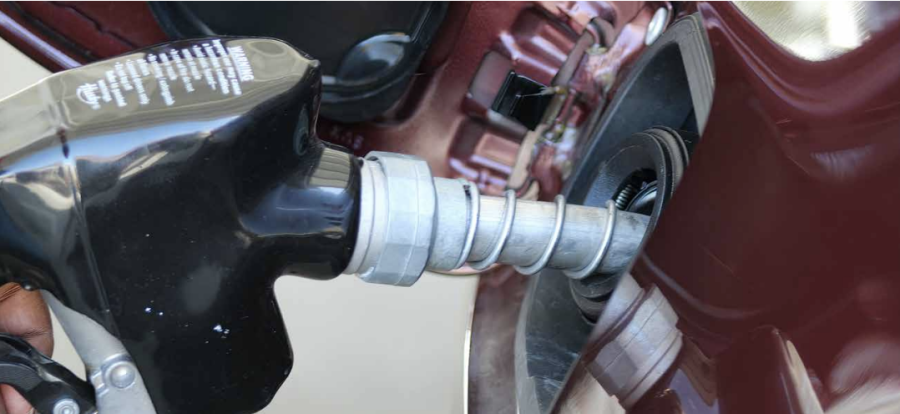Higher gas prices cause concern among commuters
Some students are concerned about how rising gasoline prices will affect their ability to continue commuting to campus.
Students who drive to school for classes are worried about skyrocketing gas prices.
“I have seen gas prices in my area [Griffith] rise almost $2. The highest I’ve seen so far is $4.35,” said freshman Nathan Hernandez. “I have had to watch how much I spend … as I need to make sure I’m able to fill my car with gas even with the increasing prices, because at the end of the day that’s my only way of commuting to school.”
National gas prices rose to 10-year highs this month, and the American Automobile Association reported that the average national price per gallon of gas reached $4.25.
The prices are rising partly due to bans by the U.S. and Western Europe on the purchase of Russian oil, causing shortfalls. Economists say prices will continue to rise, and some predict the cost of a barrel of oil could reach $180.
“I just got a new car and now I’m not sure if I have enough money to put my first tank of gas in it,” said Rhett Lubeck, a freshman Criminal Justice major. “I’m a broke college student and can’t afford these increases.”
The rising prices are affecting students across the board.
“It seems like every day my classmates talk about the gas prices in each area, comparing the everyday increase,” said senior Political Science major Jennifer Corral. “It’s scary to think about how high they will get, as not getting gas is not an option for those who need our cars to get to work or school.”
Students and faculty are already looking for ways to adjust to the rising prices.
“Normally, I would buy chicken sandwiches from Sam’s Club and that cost has actually doubled,” said Felix Obialor, a freshman Computer Science major. “I would have never imagined I would have to choose between a gallon of gas or a sandwich.”
Some people plan to cut back on their driving, where they can.
“I’ll walk more,” said History professor James Hysell.
Some students – though unhappy about the price increases – say they have no choice but to pay higher gas costs.
“The commute to school is something I cannot avoid, so I am subject to the volatility of those prices, even if they go upwards to $5 a gallon,” said senior Accounting major Ernesto Garza.





